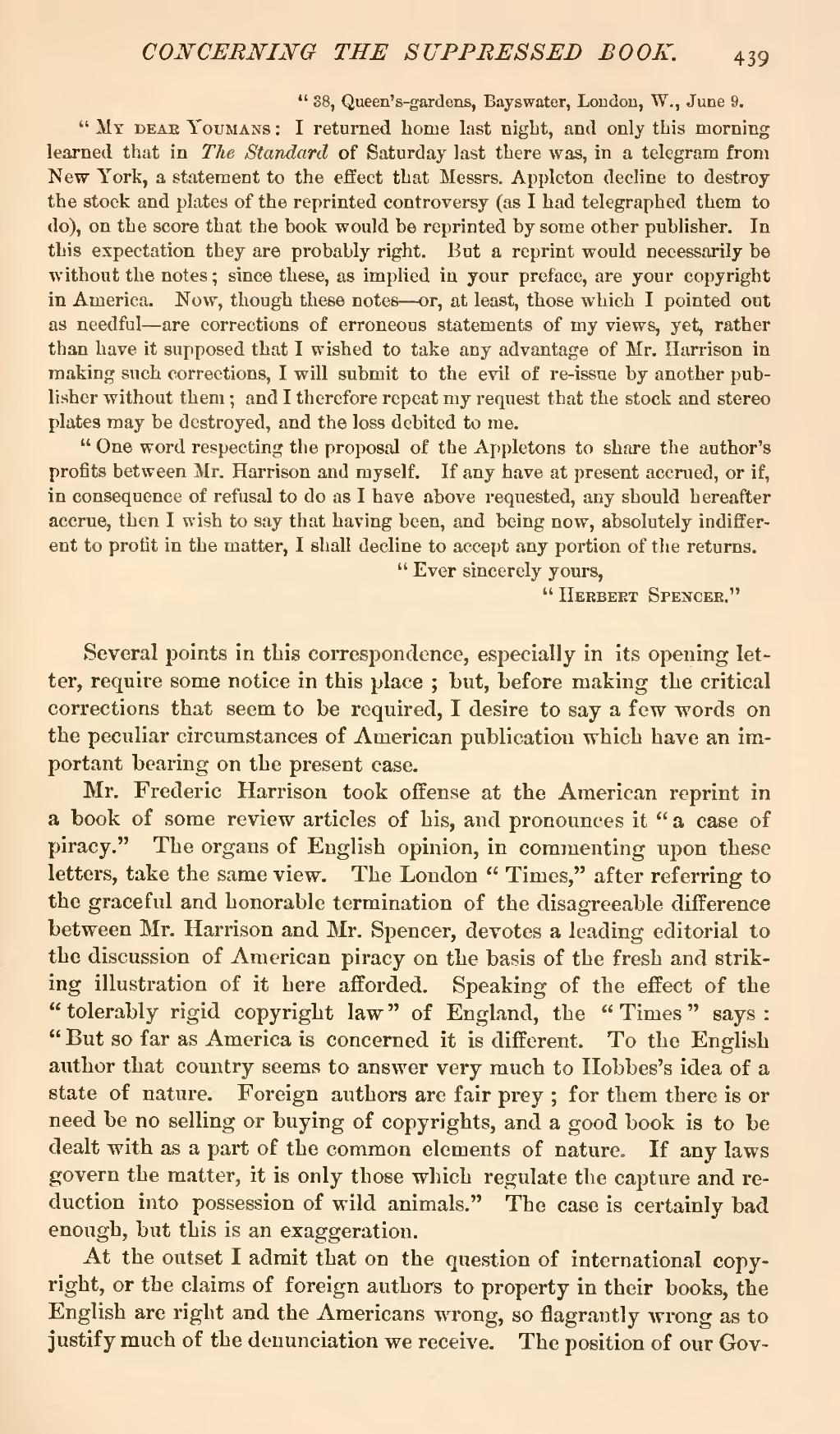"38, Queen's-gardens, Bayswater, London, W., June 9.
"My dear Youmans: I returned borne last night, and only this morning learned that in The Standard of Saturday last there was, in a telegram from New York, a statement to the effect that Messrs. Appleton decline to destroy the stock and plates of the reprinted controversy (as I had telegraphed them to do), on the score that the book would be reprinted by some other publisher. In this expectation they are probably right. But a reprint would necessarily be without the notes; since these, as implied in your preface, are your copyright in America. Now, though these notes—or, at least, those which I pointed out as needful—are corrections of erroneous statements of my views, yet, rather than have it supposed that I wished to take any advantage of Mr. Harrison in making such corrections, I will submit to the evil of re-issue by another publisher without them; and I therefore repeat my request that the stock and stereo plates may be destroyed, and the loss debited to me.
"One word respecting the proposal of the Appletons to share the author's profits between Mr. Harrison and myself. If any have at present accrued, or if, in consequence of refusal to do as I have above requested, any should hereafter accrue, then I wish to say that having been, and being now, absolutely indifferent to profit in the matter, I shall decline to accept any portion of the returns.
| "Ever sincerely yours, |
| "Herbert Spencer." |
Several points in this correspondence, especially in its opening letter, require some notice in this place; but, before making the critical corrections that seem to be required, I desire to say a few words on the peculiar circumstances of American publication which have an important bearing on the present case.
Mr. Frederic Harrison took offense at the American reprint in a book of some review articles of his, and pronounces it "a case of piracy." The organs of English opinion, in commenting upon these letters, take the same view. The London "Times," after referring to the graceful and honorable termination of the disagreeable difference between Mr. Harrison and Mr. Spencer, devotes a leading editorial to the discussion of American piracy on the basis of the fresh and striking illustration of it here afforded. Speaking of the effect of the "tolerably rigid copyright law" of England, the "Times" says: "But so far as America is concerned it is different. To the English author that country seems to answer very much to Hobbes's idea of a state of nature. Foreign authors are fair prey; for them there is or need be no selling or buying of copyrights, and a good book is to be dealt with as a part of the common elements of nature. If any laws govern the matter, it is only those which regulate the capture and reduction into possession of wild animals." The case is certainly bad enough, but this is an exaggeration.
At the outset I admit that on the question of international copyright, or the claims of foreign authors to property in their books, the English are right and the Americans wrong, so flagrantly wrong as to justify much of the denunciation we receive. The position of our Gov-
